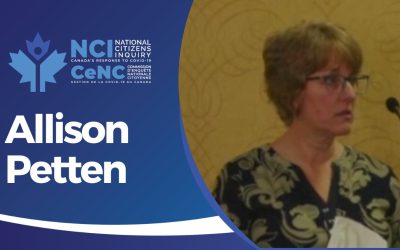The Frontier Centre for Public Policy today released a report outlining seven ‘habits’ the Alberta government should implement to increase its effectiveness in supplying services to Albertans.
Mark Milke, the Centre’s Alberta Policy Analyst and author of The Seven Habits of Highly Successful Governments: A Policy Primer for the New Alberta Government, said he looked at ‘best practices’ from around the world to see how other governments were successfully solving some of the pressing issues facing Albertans today.
“For example,” Milke said, “the health-care systems in the European Union consistently rank higher and with better patient outcomes than the Alberta health-care system. It is incumbent that we learn from their best practices to ensure we are providing the best health-care for Albertans.”
The seven habits Milke looked at are:
1) Best Practices for smart health care policy
Split the purchaser of health care from the provider;
Turn the Ministry of Health and Wellness into just the insurer;
Turn Regional Health Authorities into regional health purchasing agencies only;
Turn hospitals and clinics to the charitable, non-profit and for-profit sectors to avoid a conflict of interest between purchasers and providers;
Allow independent hospitals and clinics to compete to provide health services on contract to the Regional Health Authorities/regional purchasing agencies.
2) Best practices for smart education policy
Charter schools should be allowed to expand if managed by principals, teachers and their chosen administrators;
Restrictions on teacher certification should be relaxed where the professional has a degree or experience in the field which needs to be taught;
Teachers should be freed from belonging to the Alberta Teachers Association as a condition of work;
Eliminate school boards and directly provide parents with vouchers along the lines of European models;
Shift hiring and firing power to principals working with parent councils.
3) Best practices for smart municipal policy
The Province should rewrite the Municipal Act to require municipalities to reorganize their departments into business units with the freedom to hire and fire, buy services from the marketplace instead of central agencies, introduce performance-based pay, and thus allow them to focus on outputs and not line- item budgets.
4) Best practices for smart spending and taxation policy
The province should adopt a Fiscal Constitution which restricts spending increases to population growth plus inflation, with any increases above that, as well as proposed tax increases, subject to voter approval in a provincial referendum.
A portion of non-renewable revenues should be apportioned between one-time spending commitments (i.e., on infrastructure) and the Alberta Heritage Savings Trust Fund. As per his previous recommendation endorsed by former Alberta Premier Peter Lougheed (Milke, 2006), this author recommends between 30% and 40% of resource revenues be placed in the Heritage Fund each year.
5) Best practices for smart, balanced development
Housing shortages can only be dealt with by increasing supply, not with rent controls or excessive municipal “fees” which contract supply; continue to provide targeted help to low-income Albertans for housing;
Labour shortages can be dealt with by encouraging more temporary worker programs and reform of the federal transfer payment system and Employment Insurance program; this policy area will require the cooperation of the federal government. The current federal approach encourages workers to stay in uneconomic regions of Canada while other regions suffer from a labour shortage;
The province should remove unreasonable regulatory barriers to professionals who wish to work in Alberta and sign additional inter-provincial trade agreements similar to the Trade, Investment, and Labour Mobility Agreement signed with British Columbia in April 2006;
Any change in taxes and fees and regulations should be revenue neutral to Albertans;
Environmental costs should be borne by the individual, business or government agency which incurs them; the environmental cost of development should be tallied and applied to the polluter;
Every government department should be required to give the dollar cost of any new proposed regulation or legislation as it concerns the environment.
6) Best practices for democratic accountability
Responsibilities and taxing powers must be divided between the province and municipalities, school boards, and health regions so there is no overlap;
The right of referendum and recall should be restored to Albertans;
The government should end government party-only legislative committees.
7) Best practices for a strong and free Alberta
Look for opportunities to lower taxes;
Require government departments to cost out their plans, regulations, and legislation – a “public impact statement”;
Require a review of regulations;
Pass a Protection of Speech Act to avoid unnecessary “policing” of speech in Alberta.
View Study in PDF Format


